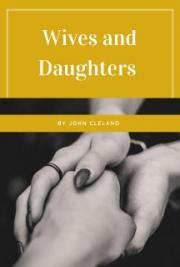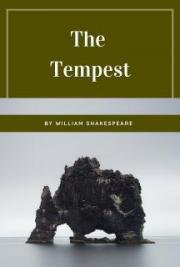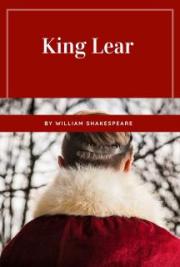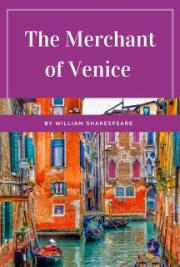Notes
[1] the] So the 4to.--The 8vo "our."
[2] triumphs] So the 8vo.--The 4to "triumph."
[3] sad] Old eds. "said."
[4] Uribassa] In this scene, but only here, the old eds. Have "Upibassa."
[5] Almains, Rutters] RUTTERS are properly--German troopers, (REITER, REUTER). In the third speech after the present one this line is repeated VERBATIM: but in the first scene of our author's FAUSTUS we have,--
"Like ALMAIN RUTTERS with their horsemen's staves."
[6] ORCANES.] Omitted in the old eds.
[7] hugy] i.e. huge.
[8] cut the] So the 8vo.--The 4to "out of."
[9] champion] i.e. champaign.
[10] Terrene] i.e. Mediterranean (but the Danube falls into the Black Sea.)
[11] Cairo] Old eds. "Cairon:" but they are not consistent in the spelling of this name; afterwards (p. 45, sec. col.) [See note 29.] they have "Cario."
[12] Fear] i.e. frighten.
[13] Sorians] So the 4to.--Here the 8vo has "Syrians"; but elsewhere in this SEC. PART of the play it agrees with the 4to in having "Sorians," and "Soria" (which occurs repeatedly,--the King of SORIA being one of the characters).--Compare Jonson's FOX, act iv. sc. 1;
"whether a ship,
Newly arriv'd from SORIA, or from
Any suspected part of all the Levant,
Be guilty of the plague," &c.
On which passage Whalley remarks; "The city Tyre, from whence the whole country had its name, was anciently called ZUR or ZOR; since the Arabs erected their empire in the East, it has been again called SOR, and is at this day known by no other name in those parts. Hence the Italians formed their SORIA."
[14] black] So the 8vo.--The 4to "AND black."
[15] Egyptians,
Illyrians, Thracians, and Bithynians]
So the 8vo (except that by a misprint it gives "Illicians").--
The 4to has,--
"Egyptians,
FREDERICK. And we from Europe to the same intent
Illirians, Thracians, and Bithynians";
a line which belongs to a later part of the scene (see next
col.) being unaccountably inserted here. [See note 21.]
[16] plage] i.e. region. So the 8vo.--The 4to "Place."
[17] viceroy] So the 8vo.--The 4to "Vice-royes."
[18] Boheme] i.e. Bohemia.
[19] Bagdet's] So the 8vo in act v. sc. 1. Here it has "Badgeths": the 4to "Baieths."
[20] parle] So the 8vo.--Here the 4to "parley," but before, repeatedly, "parle."
[21] FREDERICK. And we from Europe, to the same intent] So the 8vo.--The 4to, which gives this line in an earlier part of the scene (see note §, preceding col.), [i.e. note 15] omits it here.
[22] stand] So the 8vo.--The 4to "are."
[23] prest] i.e. ready.
[24] or] So the 8vo.--The 4to "and."
[25] conditions] So the 4to.--The 8vo "condition."
[26] Confirm'd] So the 4to.--The 8vo "Confirme."
[27] by] So the 8vo.--The 4to "with."
[28] renowmed] See note ||, p. 11. (Here the old eds. agree.)
[Note ||, from p. 11. (The First Part of Tamburlaine the
Great):
"renowmed] i.e. renowned.--So the 8vo.--The 4to
"renowned."--The form "RENOWMED" (Fr. renomme) occurs
repeatedly afterwards in this play, according to the 8vo.
It is occasionally found in writers posterior to Marlowe's
time. e.g.
"Of Constantines great towne RENOUM'D in vaine."
Verses to King James, prefixed to Lord Stirling's
MONARCHICKE TRAGEDIES, ed. 1607.]
[29] Cairo] Old eds. "Cario." See note ¶, p. 43. [i.e. note 11.]
[30] stream] Old eds. "streames."
[31] at] So the 4to.--The 8vo "an."
[32] Terrene] i.e. Mediterranean.
[33] Where] Altered by the modern editors to "Whence,"--an alteration made by one of them also in a speech at p. 48, sec. col., [see note 57] which may be compared with the present one,--
"Therefore I took my course to Manico,
WHERE, unresisted, I remov'd my camp;
And, by the coast," &c.
[34] from] So the 4to.--The 8vo "to."
[35] need] i.e. must.
[36] let] i.e. hinder.
[37] tainted] i.e. touched, struck lightly; see Richardson's DICT. in v.
[38] shall] So the 8vo.--The 4to "should."
[39] of] So the 8vo.--The 4to "to."
[40] to] So the 8vo.--The 4to "of."
[41] sprung] So the 8vo.--The 4to "sprong".--See note ?, d. [p.] 14.
[Note ?, from p. 14. (The First Part of Tamburlaine the
Great):
"Sprung] Here, and in the next speech, both the old eds.
"SPRONG": but in p. 18, l. 3, first col., the 4to has
"SPRUNG", and in the SEC. PART of the play, act iv. sc. 4,
they both give "SPRUNG from a tyrants loynes."]
[Page 18, First Column, Line 3, The First Part of
Tamburlaine the Great,
"For he was never sprung of human race,"]
[42] superficies] Old eds. "superfluities."--(In act iii. sc. 4, we have,
"the concave SUPERFICIES
Of Jove's vast palace.")
[43] through] So the 4to.--The 8vo "thorow."
[44] carcasses] So the 8vo.--The 4to "carkasse."
[45] we] So the 8vo.--The 4to "yon (you)."
[46] channel] i.e. collar, neck,--collar-bone.
[47] Morocco] The old eds. here, and in the next speech, "Morocus"; but see note ?, p. 22.
[note ?, from p. 22. (The First Part of Tamburlaine the
Great):
"Morocco] Here the old eds. "Moroccus,"--a barbarism which
I have not retained, because previously, in the stage-
direction at the commencement of this act, p. 19, they
agree in reading "Morocco."]
[48] war] So the 8vo.--The 4to "warres."
[49] if infernal] So the 8vo.--The 4to "if THE infernall."
[50] thee] Old eds. "them."
[51] these] So the 4to.--The 8vo "this."
[52] strong] A mistake,--occasioned by the word "strong" in the next line.
[53] Bootes'] So the 4to.--The 8vo "Boetes."
[54] leaguer] i.e. camp.
[55] Jubalter] Here the old eds. have "Gibralter"; but in the First Part of this play they have "JUBALTER": see p. 25, first col.
[p. 25, first col. (The First Part of Tamburlaine the
Great):
"And thence unto the Straits of Jubalter;"]
[56] The mighty Christian Priest,
Call'd John the Great] Concerning the fabulous personage,
PRESTER JOHN, see Nares's GLOSS. in v.
[57] Where] See note ¶, p. 45. [i.e. note 33.]
[58] Byather] The editor of 1826 printed "Biafar": but it is very doubtful if Marlowe wrote the names of places correctly.
[59] Damascus] Here the old eds. "Damasco." See note *, p. 31.
[note *, from p. 31. (The First Part of Tamburlaine the
Great):
"Damascus] Both the old eds. here "Damasco:" but in many
other places they agree in reading "Damascus."]
[60] And made, &c.] A word dropt out from this line.
[61] him] i.e. the king of Natolia.
[62] orient] Old eds. "orientall" and "oriental."--Both in our author's FAUSTUS and in his JEW OF MALTA we have "ORIENT pearl."
[63] Soria] See note ?, p. 44. [i.e. note 13.]
[64] thereof] So the 8vo.--The 4to "heereof."
[65] that we vow] i.e. that which we vow. So the 8vo.--The 4to "WHAT we vow." Neither of the modern editors understanding the passage, they printed "WE THAT vow."
[66] faiths] So the 8vo.--The 4to "fame."
[67] and religion] Old eds. "and THEIR religion."
[68] consummate] Old eds. "consinuate." The modern editors print "continuate," a word which occurs in Shakespeare's TIMON OF ATHENS, act i. sc. 1., but which the metre determines to be inadmissible in the present passage.--The Revd. J. Mitford proposes "continent," in the sense of--restraining from violence.
[69] this] So the 8vo.--The 4to "the."
[70] martial] So the 4to.--The 8vo "materiall."
[71] our] So the 4to.--The 8vo "your."
[72] With] So the 4to.--The 8vo "Which."
[73] thy servant's] He means Sigismund. So a few lines after, "this traitor's perjury."
[74] discomfit] Old eds. "discomfort." (Compare the first line of the next scene.)
[75] lords] So the 8vo.--The 4to "lord."
[76] Christian] So the 8vo.--The 4to "Christians."
[77] Zoacum] "Or ZAKKUM.--The description of this tree is taken from a fable in the Koran, chap. 37." Ed. 1826.
[78] an] So the 8vo.--The 4to "any."
[79] We will both watch and ward shall keep his trunk] i.e. We will that both watch, &c. So the 4to.--The 8vo has "AND keepe."
[80] Uribassa, give] So the 8vo.--The 4to "Vribassa, AND giue."
[81] Soria] See note ?, p. 44. [i.e. note 13.]
[82] their] So the 4to.--Not in the 8vo.
[83] brows] Old eds. "bowers."
[84] this] So the 8vo.--The 4to "the."
[85] no] So the 4to.--The 8vo "not."
[86] and] So the 4to.--The 8vo "a."
[87] makes] So the 4to.--The 8vo "make."
[88] author] So the 4to.--The 8vo "anchor."
[89] yes] Old eds. "yet."
[90] excellence] So the 4to.--The 8vo "excellency."
[91] cavalieros] i.e. mounds, or elevations of earth, to lodge cannon.
[92] prevails] i.e. avails.
[93] Mausolus'] Wrong quantity.
[94] one] So the 8vo ("on").--The 4to "our."
[95] stature] See note §, p. 27.--So the 8vo.--The 4to "statue." Here the metre would be assisted by reading "statua," which is frequently found in our early writers: see my REMARKS ON MR. COLLIER'S AND MR. KNIGHT'S EDITIONS OF SHAKESPEARE, p. 186.
[note §, from p. 27. (The First Part of Tamburlaine the
Great):
"stature] So the 8vo.--The 4to "statue:" but again, in the
SECOND PART of this play, act ii. sc. 4, we have, according
to the 8vo--
"And here will I set up her STATURE."
and, among many passages that might be cited from our
early authors, compare the following;
"The STATURES huge, of Porphyrie and costlier matters
made."
Warner's ALBIONS ENGLAND, p. 303. ed. 1596.
"By them shal Isis STATURE gently stand."
Chapman's BLIND BEGGER OF ALEXANDRIA, 1598, sig. A 3.
"Was not Anubis with his long nose of gold preferred
before Neptune, whose STATURE was but brasse?"
Lyly's MIDAS, sig. A 2. ed. 1592."]
[96] Soria] See note ?, p. 44. [i.e. note 13.]
[97] fate] So the 8vo.--The 4to "fates."
[98] his] Old eds. "our."
[99] all] So the 8vo.--Omitted in the 4to.
[100] honours] So the 8vo.--The 4to "honour."
[101] in conquest] So the 4to.--The 8vo "in THE conquest."
[102] Judaea] So the 8vo.--The 4to "Juda."
[103] Sclavonia's] Old eds. "Scalonians" and "Sclauonians."
[104] Soria] See note ?, p. 44. [i.e. note 13.]
[105] Damascus] Here the old eds. "Damasco." See note *, p. 31.
[note *, from p. 31. (The First Part of Tamburlaine the
Great):
"Damascus] Both the old eds. here "Damasco:" but in many
other places they agree in reading "Damascus.""]
[106] That's no matter, &c.] So previously (p. 46, first col.)
Almeda speaks in prose, "I like that well," &c.
[p. 46, first col. (This play):
"ALMEDA. I like that well: but, tell me, my lord,
if I should let you go, would you be as good as
your word? shall I be made a king for my labour?"]
[107] dearth] Old eds. "death."
[108] th'] So the 8vo.--Omitted in the 4to.
[109] Those] Old eds. "Whose."
[110] sorrows] So the 8vo.--The 4to "sorrow."
[111] thirst] So the 4to.--The 8vo "colde."
[112] champion] i.e. champaign.
[113] which] Old eds. "with."
[114] Whereas] i.e. Where.
[115] the] So the 8vo.--The 4to "and."
[116] cavalieros] See note ?, p. 52. [i.e. note 91.]
[117] argins] "Argine, Ital. An embankment, a rampart.["] Ed., 1826.
[118] great] So the 8vo.--The 4to "greatst."
[119] the] Old eds. "their."
[120] by nature] So the 8vo.--The 4to "by THE nature."
[121] a] So the 4to.--The 8vo "the."
[122] A ring of pikes, mingled with shot and horse] Qy. "Foot" instead of "shot"? (but the "ring of pikes" is "foot").--The Revd. J. Mitford proposes to read, "A ring of pikes AND HORSE, MANGLED with shot."
[123] his] So the 8vo--The 4to "this."
[124] march'd] So the 4to.--The 8vo "martch."
[125] drop] So the 8vo.--The 4to "dram."
[126] lance] So the 4to.--Here the 8vo "lanch": but afterwards more than once it has "lance."
[127] I know not, &c.] This and the next four speeches are evidently prose, as are several other portions of the play.
[128] 'Tis] So the 4to.--The 8vo "This."
[129] accursed] So the 4to.--The 8vo "cursed."
[130] his] So the 4to.--The 8vo "the."
[131] point] So the 8vo.--The 4to "port."
[132] Soria] See note ?, p. 44. [i.e. note 13.]
[133] Minions, falc'nets, and sakers] "All small pieces of ordnance." Ed. 1826.
[134] hold] Old eds. "gold" and "golde."
[135] quietly] So the 8vo.--The 4to "quickely."
[136] friends] So the 4to.--The 8vo "friend."
[137] you] So the 4to.--The 8vo "thou."
[138] pioners] See note ||, p. 20.
[note ||, from p. 20. (The First Part of Tamburlaine the
Great):
"pioners] The usual spelling of the word in our early
writers (in Shakespeare, for instance)."]
[139] in] So the 8vo.--The 4to "to."
[140] argins] See note ?[sic], p. 55. [note ?? p. 55, i.e. note 117.]
[141] quietly] So the 8vo.--The 4to "quickely."
[142] Were you, that are the friends of Tamburlaine] So the 8vo.
--The 4to "Were ALL you that are friends of Tamburlaine."
[143] of] So the 8vo.--The 4to "to."
[144] all convoys that can] i.e. (I believe) all convoys (conveyances) that can be cut off. The modern editors alter "can" to "come."
[145] I am] So the 8vo.--The 4to "am I."
[146] into] So the 8vo.--The 4to "vnto."
[147] hold] So the 4to.--The 8vo "holdS."
[148] straineth] So the 4to.--The 8vo "staineth."
[149] home] So the 8vo.--The 4to "haue."
[150] wert] So the 8vo.--The 4to "art."
[151] join'd] So the 4to.--The 8vo "inioin'd."
[152] of] So the 8vo.--The 4to "in."
[153] the] Added perhaps by a mistake of the transcriber or printer.
[154] and] So the 8vo.--The 4to "the."
[155] Renowmed] See note ||, p. 11. So the 8vo.--The 4to
"Renowned."
[Note ||, from p. 11. (The First Part of Tamburlaine the
Great).
"renowmed] i.e. renowned.--So the 8vo.--The 4to "renowned."
--The form "RENOWMED" (Fr. renomme) occurs repeatedly
afterwards in this play, according to the 8vo. It is
occasionally found in writers posterior to Marlowe's time.
e.g.
"Of Constantines great towne RENOUM'D in vaine."
Verses to King James, prefixed to Lord Stirling's
MONARCHICKE TRAGEDIES, ed. 1607."]
[156] emperor, mighty] So the 8vo.--The 4to "emperour, AND mightie."
[157] the] So the 4to.--The 8vo "this."
[158] your] So the 8vo.--The 4to "our."
[159] term'd] Old eds. "terme."
[160] the] So the 4to.--Omitted in the 8vo.
[161] your] So the 8vo.--The 4to "our."
[162] brandishing their] So the 4to.--The 8vo "brandishing IN their."
[163] with] So the 4to.--Omitted in the 8vo.
[164] shew'd your] So the 8vo.--The 4to "shewed TO your."
[165] Sorians] See note ?, p. 44. [i.e. note 13.]
[166] repair'd] So the 8vo.--The 4to "prepar'd."
[167] And neighbour cities of your highness' land] So the 8vo.-– Omitted in the 4to.
[168] he] i.e. Death. So the 8vo.--The 4to "it."
[169] is] So the 8vo.--The 4to "the."
[170] harness'd] So the 8vo.--The 4to "harnesse."
[171] on] So the 4to.--The 8vo "with" (the compositor having caught the word from the preceding line).
[172] thou shalt] So the 8vo.--The 4to "shalt thou."
[173] the] So the 8vo.--The 4to "our."
[174] and rent] So the 8vo.--The 4to "or rend."
[175] Go to, sirrah] So the 8vo.--The 4to "Goe sirrha."
[176] give arms] An heraldic expression, meaning--shew armorial bearings (used, of course, with a quibble).
[177] No] So the 4to.--The 8vo "Go."
[178] bugs] i.e. bugbears, objects to strike you with terror.
[179] rout] i.e. crew, rabble.
[180] as the foolish king of Persia did] See p. 16, first col.
[p. 15, first col. (The First Part of Tamburlaine the
Great, ACT II, Scene IV):
" SCENE IV.
Enter MYCETES with his crown in his hand.
MYCETES. Accurs'd be he that first invented war!
They knew not, ah, they knew not, simple men,
How those were hit by pelting cannon-shot
Stand staggering like a quivering aspen-leaf
Fearing the force of Boreas' boisterous blasts!
[page 16]
In what a lamentable case were I,
If nature had not given me wisdom's lore!
For kings are clouts that every man shoots at,
Our crown the pin that thousands seek to cleave:
Therefore in policy I think it good
To hide it close; a goodly stratagem,
And far from any man that is a fool:
So shall not I be known; or if I be,
They cannot take away my crown from me.
Here will I hide it in this simple hole.
Enter TAMBURLAINE.
TAMBURLAINE.
What, fearful coward, straggling from the camp,
When kings themselves are present in the field?"]
[181] aspect] So the 8vo.--The 4to "aspects."
[182] sits asleep] At the back of the stage, which was supposed to represent the interior of the tent.
[183] You cannot] So the 8vo.--The 4to "Can you not."
[184] scare] So the 8vo.--The 4to "scarce."
[185] tall] i.e. bold, brave.
[186] both you] So the 8vo.--The 4to "you both."
[187] should I] So the 8vo.--The 4to "I should."
[188] ye] So the 8vo.--The 4to "my."
[189] stoop your pride] i.e. make your pride to stoop.
[190] bodies] So the 8vo.--The 4to "glories."
[191] mine] So the 4to.--The 8vo "my."
[192] may] So the 4to.--The 8vo "nay."
[193] up] The modern editors alter this word to "by," not understanding the passage. Tamburlaine means--Do not KNEEL to me for his pardon.
[194] once] So the 4to.--The 8vo "one."
[195] martial] So the 8vo.--The 4to "materiall." (In this line "fire" is a dissyllable")
[196] thine] So the 8vo.--The 4to "thy."
[197] which] Old eds. "with."
[198] Jaertis'] So the 8vo.--The 4to "Laertis." By "Jaertis'" must be meant--Jaxartes'.
[199] incorporeal] So the 8vo.--The 4to "incorporall."
[200] for being seen] i.e. "that thou mayest not be seen." Ed. 1826. See Richardson's DICT. in v. FOR.
[201] you shall] So the 8vo.--The 4to "shall ye."
[202] Approve] i.e. prove, experience.
[203] bloods] So the 4to.--The 8vo "blood."
[204] peasants] So the 8vo.--The 4to "parsants."
[205] resist in] Old eds "resisting."
[206] Casane] So the 4to.--The 8vo "VSUM Casane."
[207] it] So the 8vo.--Omitted in the 4to.
[208] Excel] Old eds. "Expell" and "Expel."
[209] artier] See note *, p. 18.
[Note *, from p. 18. (The First Part of Tamburlaine the
Great):
"Artier] i.e. artery. This form occurs again in the SEC.
PART of the present play: so too in a copy of verses by
Day;
"Hid in the vaines and ARTIERS of the earthe."
SHAKESPEARE SOC. PAPERS, vol. i. 19.
The word indeed was variously written of old:
"The ARTER strynge is the conduyt of the lyfe spiryte."
Hormanni VULGARIA, sig. G iii. ed. 1530.
"Riche treasures serue for th'ARTERS of the war."
Lord Stirling's DARIUS, act ii. Sig. C 2. ed. 1604.
"Onelye the extrauagant ARTIRE of my arme is brused."
EVERIE WOMAN IN HER HUMOR, 1609, sig. D 4.
"And from the veines some bloud each ARTIRE draines."
Davies's MICROCOSMOS, 1611, p. 56."]
[210] remorseful] i.e. compassionate.
[211] miss] i.e. loss, want. The construction is--Run round about, mourning the miss of the females.
[212] behold] Qy "beheld"?
[213] a] So the 4to.--The 8vo "the."
[214] Have] Old eds. "Hath."
[215] to] So the 8vo.--The 4to "and."
[216] in] So the 8vo.--The 4to "to."
[217] now, my lord; and, will you] So the 8vo.--The 4to "GOOD my Lord, IF YOU WILL."
[218] mouths] So the 4to.--The 8vo "mother."
[219] rebated] i.e. blunted.
[220] thereof] So the 8vo.--The 4to "heereof."
[221] and will] So the 4to.--The 8vo "and I wil."
[222] She anoints her throat] This incident, as Mr. Collier
observes (HIST. OF ENG. DRAM. POET., iii. 119) is borrowed from Ariosto's ORLANDO FURIOSO, B. xxix, "where Isabella, to save herself from the lawless passion of Rodomont, anoints her neck with a decoction of herbs, which she pretends will render it invulnerable: she then presents her throat to the Pagan, who, believing her assertion, aims a blow and strikes off her head."
[223] my] Altered by the modern editors to "thy,"--unnecessarily.
[224] Elysium] Old eds. "Elisian" and "Elizian."
[225] do borrow] So the 4to.--The 8vo "borow doo."
[226] my] So the 4to (Theridamas is King of Argier).--The 8vo "thy."
[227] Soria] See note ?, p. 44. [i.e. note 13.]
[228] his] So the 4to.--The 8vo "their."
[229] led by five] So the 4to.--The 8vo "led by WITH fiue."
[230] Holla, ye pamper'd jades of Asia, &c.] The ridicule showered on this passage by a long series of poets, will be found noticed in the ACCOUNT OF MARLOWE AND HIS WRITINGS.
[The "Account of Marlowe and His Writings," is the
introduction to this book of "The Works of Christopher
Marlowe." That is, the book from which this play has been
transcribed. The following is a footnote from page xvii
of that introduction.]
["Tamb. Holla, ye pamper'd jades of Asia!" &c.
p. 64, sec. col.
This has been quoted or alluded to, generally with ridicule, by a whole host of writers. Pistol's "hollow pamper'd jades of Asia" in Shakespeare's HENRY IV. P. II. Act ii. sc. 4, is known to most readers: see also Beaumont and Fletcher's COXCOMB, act ii. sc. 2; Fletcher's WOMEN PLEASED, act iv. sc. 1; Chapman's, Jonson's, and Marston's EASTWARD HO, act ii. sig. B 3, ed. 1605; Brathwait's STRAPPADO FOR THE DIUELL, 1615, p. 159; Taylor the water-poet's THIEFE and his WORLD RUNNES ON WHEELES,--WORKES, pp. 111 [121], 239, ed. 1630; A BROWN DOZEN OF DRUNKARDS, &c. 1648, sig. A 3; the Duke of Newcastle's VARIETIE, A COMEDY, 1649, p. 72; --but I cannot afford room for more references.--In 1566 a similar spectacle had been exhibited at Gray's Inn: there the Dumb Show before the first act of Gascoigne and Kinwelmersh's JOCASTA introduced "a king with an imperiall crowne vpon hys head," &c. "sitting in a chariote very richly furnished, drawen in by iiii kings in their dublets and hosen, with crownes also vpon theyr heads, representing vnto vs ambition by the historie of Sesostres," &c.
[231] And blow the morning from their nostrils] Here "nostrils" is to be read as a trisyllable,--and indeed is spelt in the 4to "nosterils."--Mr. Collier (HIST. OF ENG. DRAM. POET., iii. 124) remarks that this has been borrowed from Marlowe by the anonymous author of the tragedy of CAESAR AND POMPEY, 1607 (and he might have compared also Chapman's HYMNUS IN CYNTHIAM,--THE SHADOW OF NIGHT, &c. 1594, sig. D 3): but, after all, it is only a translation;
"cum primum alto se gurgite tollunt
Solis equi, LUCEMQUE ELATIS NARIBUS EFFLANT."
AEN. xii. 114
(Virgil being indebted to Ennius and Lucilius).
[232] in] So the 8vo.--The 4to "as."
[233] racking] i.e. moving like smoke or vapour: see Richardson's DICT. in v.
[234] have coach] So the 8vo.--The 4to "haue A coach."
[235] by] So the 4to.--The 8vo "with."
[236] garden-plot] So the 4to.--The 8vo "GARDED plot."
[237] colts] i.e. (with a quibble) colts'-teeth.
[238] same] So the 8vo.--Omitted in the 4to.
[239] match] So the 8vo.--The 4to "march."
[240] Above] So the 8vo.--The 4to "About."
[241] tall] i.e. bold, brave.
[242] their] So the 4to.--Omitted in the 8vo.
[243] continent] Old eds. "content."
[244] jest] A quibble--which will be understood by those readers who recollect the double sense of JAPE (jest) in our earliest writers.
[245] prest] i.e. ready.
[246] Terrene] i.e. Mediterranean.
[247] all] So the 8vo.--Omitted in the 4to.
[248] Jaertis'] See note **, p. 62. [i.e. note 198.] So the 8vo.--The 4to "Laertes."
[249] furthest] So the 4to.--The 8vo "furthiest."
[250] Thorough] So the 8vo.--The 4to "Through."
[251] Like to an almond-tree, &c.] This simile in borrowed from Spenser's FAERIE QUEENE, B. i. C. vii. st. 32;
"Upon the top of all his loftie crest,
A bounch of heares discolourd diversly,
With sprincled pearle and gold full richly drest,
Did shake, and seemd to daunce for iollity;
Like to an almond tree ymounted hye
On top of greene Selinis all alone,
With blossoms brave bedecked daintily;
Whose tender locks do tremble every one
At everie little breath that under heaven is blowne."
The first three books of THE FAERIE QUEENE were originally printed in 1590, the year in which the present pla







